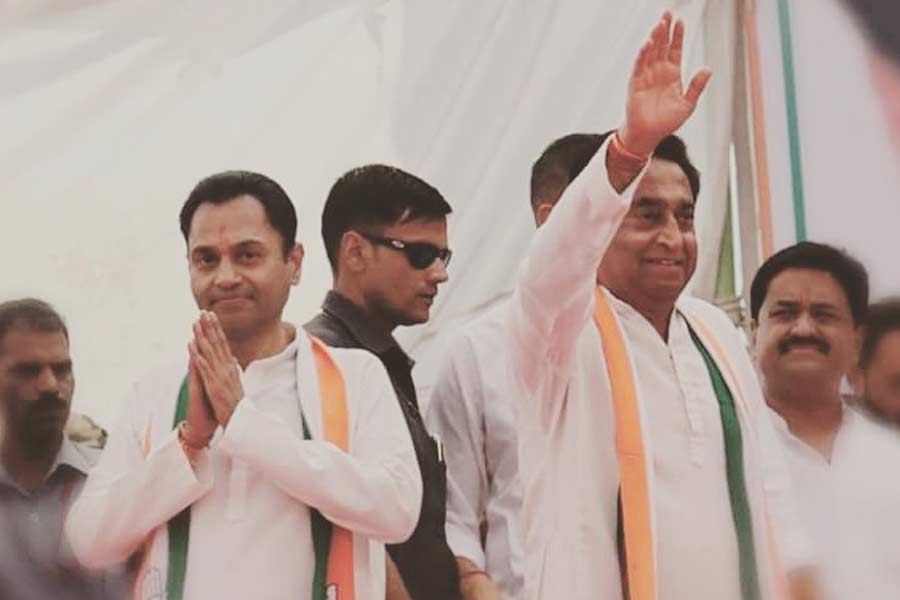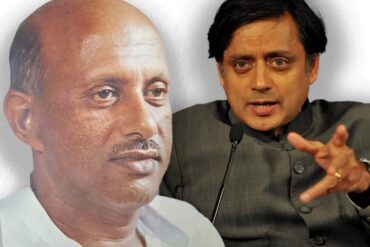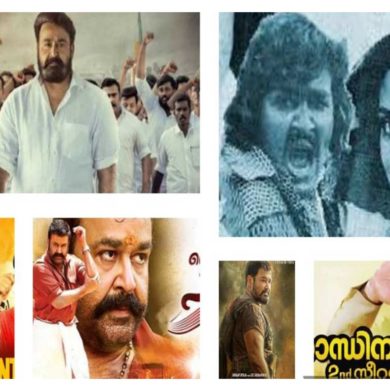
Five years ago, Madhya Pradesh played an important role in BJP’s historic success in the Lok Sabha elections. It nearly swept the state and paved the way for BJP to attain majority on its own. In fact, Madhya Pradesh had been rewarding BJP earlier too—even before the ‘Modi wave’ swept the country in 2014—as it elected BJP governments in three successive state elections and added to the BJP kitty in a big way in Lok Sabha elections.
But of late, a major change is visible in the state. Even the BJP leaders who were supremely confident till a few months ago and would openly boast that they would not just retain the 27 seats they had won in 2014 but also talked about breaking into the two Congress bastions—Jyotiraditya Scindia’s Guna and Kamal Nath’s Chhindwara, now appear worried.
On one hand, the party is unable to find suitable candidates in many constituencies and on the other, it is facing infighting and open rebellions. Denial of ticket to sitting MPs has worsened the situation. Take the case of Balaghat, where sitting MP Bodh Singh Bhagat plans to contest as an independent. Even top leaders of the party tried to persuade him out of it but he is hell-bent on contesting the election against BJP’s official candidate Dhal Singh Bisen.
Similarly, in Shahdol, BJP has fielded Himadri Singh, who had recently joined the party. She had unsuccessfully contested on a Congress ticket in the by-poll and lost to BJP’s Gyan Singh. But the BJP has given her a ticket and Gyan Singh is clearly unhappy. Party leaders and workers are upset in several other constituencies too. BJP had hoped that this strategy would check the anti-incumbency factor but sitting MPs who have been denied ticket are livid.
Besides, the element of surprise in Congress’ list of candidates has also added to the woes of the BJP. Take for instance, Dewas, where Congress has fielded Prahlad Singh Tipaniya, a famous folk singer, against Mahendra Singh Solanki, a former judge, who recently quit service. In Sidhi, BJP candidate Riti Pathak is facing opposition from leaders within her party. Here, Congress has fielded Ajay Singh, the son of former chief minister Arjun Singh. Similarly, in Satna, Ganesh Singh too faces opposition from within his own party.
That’s not all; there are other issues too, including the lack of coordination among senior leaders. For a party that prides on its disciplined cadre, there have been protests and even demonstrations at state BJP headquarters. The party workers carrying placards even raised slogans against their three-time chief minister Shivraj Singh Chouhan.
In a constituency like Bhopal that has consistently been won by BJP since 1989, Congress has put the BJP in a tight spot by fielding former chief minister Digvijaya Singh. Singh has criss-crossed the constituency in the last two weeks, attended public meetings and met social-caste groups, but BJP’s campaign is yet to begin as it hasn’t been able to find a suitable candidate who can take on Digvijaya Singh.
The inexplicable delay added to the confusion of BJP workers who are yet to start the campaign. In Indore, another BJP stronghold, party leadership decided not to give ticket to veteran Sumitra Mahajan, but here too it couldn’t announce its candidate. Clearly, it shows the failure of the leadership—it was decided well in advance that Mahajan wouldn’t be fielded but there was no decision on who would replace her. Sensing trouble on several seats, BJP is banking on the strong RSS cadre in the state to come to its succour.
BJP leaders have been claiming that they will repeat the 2014 performance. Former CM Shivraj Singh Chouhan had also claimed in a public meeting recently that the party would win over 25 seats. However, Kamal Nath had recently taken a dig at the BJP over the delay in announcing names of candidates and said that BJP should publish an advertisement in newspapers seeking applications to find suitable candidates. Also, Nath had said that the Congress would win at least 22 seats.
Congress is likely to perform well in tribal dominated seats and constituencies that have a high Dalit populace. This trend was evident in the assembly election. The party’s strategy is to field new candidates. Insiders in Congress admit to setting a realistic target of 15 seats on account of the BJP’s strong cadre presence. There is a bit of pessimism among BJP workers following its defeat in the assembly elections held last year.
While Congress had managed to form the government despite falling short of a simple majority, BJP hadn’t done too badly either in the assembly elections. It has 109 MLAs in the house to Congress’ 114. Still, it was a severe jolt and the party hasn’t fully recovered since then.
Nevertheless, party leaders are of the belief that Prime Minister Modi’s popularity, the Pulwama attack and its aftermath and projecting “failures of Kamal Nath” government would help them do better in the Lok Sabha polls. As far as Congress is concerned, its worst performance came in 2014. The party now hopes to do much better. It will not only want to better its 2009 tally—when it won 12 seats—but also try and get the better of BJP by crossing the halfway mark.






